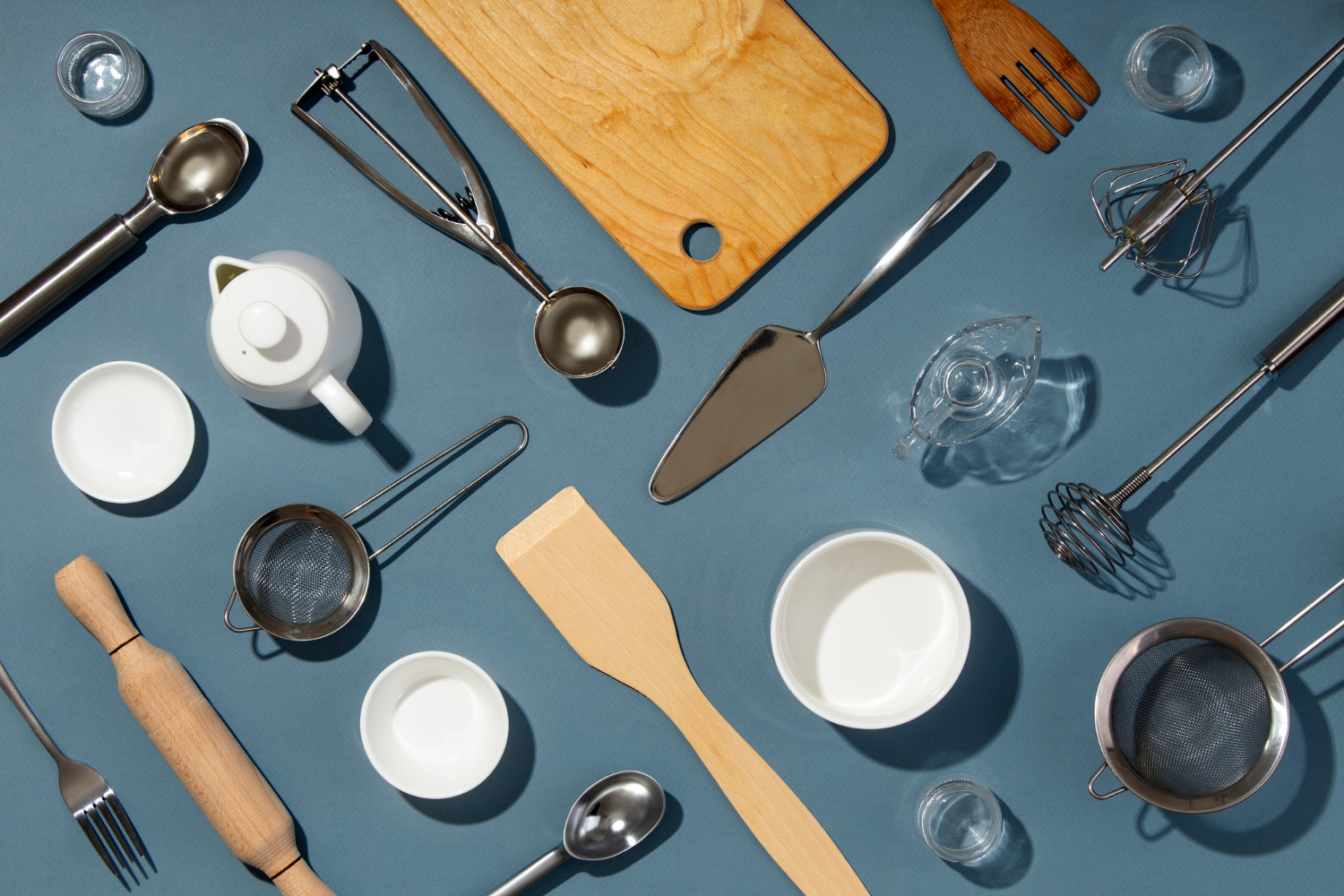Understanding the importance of using non-toxic cooking utensils
Using non-toxic cooking utensils is essential for maintaining a healthy kitchen environment. When we cook, the utensils we use can come into contact with our food, and if they are made of toxic materials, harmful substances can leach into our meals. By using non-toxic cooking utensils, we can ensure that our food remains safe and free from any potentially harmful chemicals or metals.
Another important aspect of using non-toxic cooking utensils is that they are better for the environment. Many traditional utensils are made from materials that are not biodegradable and can contribute to pollution. By choosing non-toxic materials, such as stainless steel or silicone, we can reduce our impact on the environment.
Exploring different types of healthy cooking utensil materials
There are several non-toxic materials that are commonly used for cooking utensils.
Stainless steel: Durable, resistant to rust and corrosion, and does not react with acidic or alkaline foods.
Silicone: Food-grade silicone is heat-resistant, non-stick, and does not release any harmful chemicals when heated.
Bamboo: Eco-friendly choice, as it is a renewable resource and has natural antimicrobial properties.
Other non-toxic materials include glass, cast iron, and ceramic.
Each material has its own unique properties and benefits, so it’s important to consider your cooking needs and preferences when choosing utensils.

Recommended Selection of Utensils
Stainless steel and silicone are versatile and can be used for various cooking tasks, while bamboo is ideal for stirring and serving.
Glass utensils are great for baking and measuring, while cast iron is excellent for heat retention and even cooking.
Ceramic utensils are stylish and can be used for both cooking and serving.
Factors to consider when choosing healthy cooking utensil materials
When selecting non-toxic cooking utensils, there are several factors to consider.
First and foremost, make sure the material is labeled as food-grade and free from harmful chemicals, such as BPA or phthalates. Look for utensils that are heat-resistant, dishwasher-safe, and easy to clean.
Consider the durability and longevity of the material to ensure that your utensils will last for a long time. Additionally, think about the specific cooking tasks you will be using the utensils for and choose materials that are suitable for those tasks.
For example, if you frequently cook with acidic ingredients, opt for stainless steel or silicone utensils that won’t react with the food.
Benefits of using non-toxic cooking utensils
Using non-toxic cooking utensils comes with several benefits. First and foremost, it helps to ensure the safety and health of your meals. By using utensils made from non-toxic materials, you can avoid the risk of harmful substances leaching into your food.
Non-toxic utensils are also more environmentally friendly, as they are often made from sustainable and biodegradable materials. Additionally, these utensils are typically more durable and long-lasting, saving you money in the long run. They are also easier to clean and maintain, making your cooking experience more convenient and enjoyable.
Tips for maintaining and caring for your healthy cooking utensils
To ensure the longevity of your non-toxic cooking utensils, it’s important to properly maintain and care for them. Here are some tips to help you keep your utensils in top condition:
– Always follow the instructions listed by the manufacturer for the utensil’s cleaning and care.
– Avoid using abrasive cleaners or scrubbers that can damage the surface of the utensils.
– If using wooden utensils, avoid soaking them in water for prolonged periods to prevent warping.
– Store your utensils in a clean and dry place to prevent mold or mildew growth.
– Regularly inspect your utensils for any signs of wear or damage and replace them if necessary.
– Consider using utensil holders or organizers to keep your utensils neatly organized and easily accessible.
By following these tips, you can extend the lifespan of your healthy cooking utensils and continue to enjoy safe and delicious meals.


1 thought on “Choosing Healthy Cooking Utensil Materials”